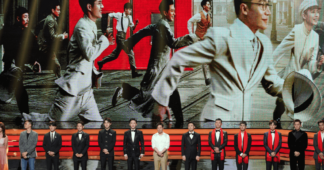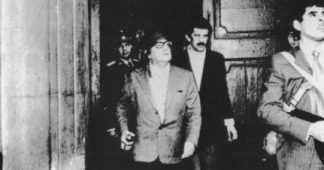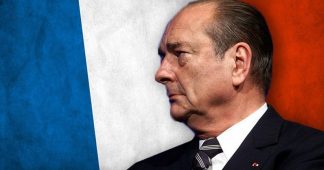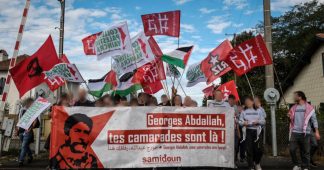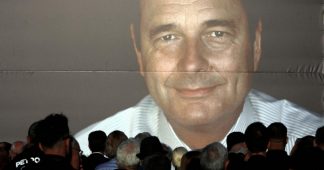A veteran of 1968
Mar 14, 2022
Even at this tragic historical moment, I was saddened to learn of the death at the age of 80 of the French revolutionary leader Alain Krivine. For me he always represented the indomitable spirit of the great revolt by French workers and students in May 1968.
Krivine’s life touched most of the great dramas of the 20th century. His family were Ukrainian Jews who fled the antisemitic pogroms in the Tsarist Empire to France.
As a child he was hidden from the Nazi occupation in the French countryside. As a teenager, he joined the youth wing of the French Communist Party, which dominated the workers’ movement.
But Krivine soon was at odds with the party leadership, who refused to support Algeria’s war of independence against France. He joined a secret organisation, Jeune resistance (Young Resistance), which encouraged French conscripts to desert.
He drew close to French Trotskyists of the Fourth International who strongly supported the Algerian freedom struggle.
In 1966 Krivine and his comrades were expelled from the Communist student organisation. They set up the Jeunesse Communiste Révolutionnaire (Revolutionary Communist Youth), which played a central role in the great student revolt against the regime of President Charles de Gaulle in May 1968.
The government’s attempt to crush the student barricades on the Paris Left Bank sparked off the biggest general strike in West European history as workers occupied their factories.
As the British revolutionary David Widgery recalled ten years later, “It was as if an international political pageant was being acted out—the ideas we had treasured in pamphlets and argued about in tiny pub back rooms were now roaming, alive, three dimensional. Marxism had come out of the cold.
“The simple lessons of 1968 were simple to read off and important to re-emphasise. The working class… remained, when the chips were down, decisive.”
I remember many years later watching a film of Krivine with two fellow leaders of the JCR, Daniel Bensaïd and Henri Weber, at the height of the revolt. I thought to myself how young and happy they looked.
Of course, at the crest of a struggle, it’s easy to be a revolutionary. The task is to remain a revolutionary when struggle dwindles. Weber—a brilliant intellectual—failed that test, and later became a social democrat. But Krivine and Bensaïd persisted till their deaths.
As the British revolutionary David Widgery recalled ten years later, “It was as if an international political pageant was being acted out—the ideas we had treasured in pamphlets and argued about in tiny pub back rooms were now roaming, alive, three dimensional. Marxism had come out of the cold.
“The simple lessons of 1968 were simple to read off and important to re-emphasise. The working class… remained, when the chips were down, decisive.”
I remember many years later watching a film of Krivine with two fellow leaders of the JCR, Daniel Bensaïd and Henri Weber, at the height of the revolt. I thought to myself how young and happy they looked.
Of course, at the crest of a struggle, it’s easy to be a revolutionary. The task is to remain a revolutionary when struggle dwindles. Weber—a brilliant intellectual—failed that test, and later became a social democrat. But Krivine and Bensaïd persisted till their deaths.
Published at socialistworker.co.uk
We remind our readers that publication of articles on our site does not mean that we agree with what is written. Our policy is to publish anything which we consider of interest, so as to assist our readers in forming their opinions. Sometimes we even publish articles with which we totally disagree, since we believe it is important for our readers to be informed on as wide a spectrum of views as possible.
